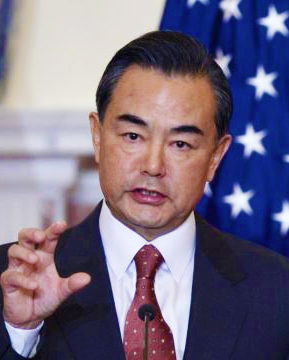Our 10 Most Read Articles of 2017
-- Maj Gen P K Mallick,VSM(Retd)
The world economic forum engages the foremost political, business and other leaders of society to shape global, regional and industry agendas. It was established in 1971 as a not-for-profit foundation and is headquartered in Geneva, Switzerland. It is independent, impartial and not tied to any special interests. It is a good source of information and publishes some excellent reports. They range from topics as diverse as the most powerful economies of the future, reading recommendations from top university professors, predictions of augmented reality killing off the smartphone, to the secrets of a meaningful life.
Here’s another chance to take a look at the World Economic Forum’s most-read articles of 2017.
The world’s 10 biggest economies in 2017
New figures from the World Bank revealed the world’s biggest economies in 2017, with the US coming top – at $18trillion and representing 24.3% of the global economy. China and Japan were next in line at $11trillion (14.8%) and $4.4trillion (6%) respectively.

A prediction: The world's most powerful economies in 2030PricewaterhouseCoopers took the long view of how the global economic order will change, ranking 32 countries by their projected global gross domestic product by purchasing power parity. PPP is used by macroeconomists to determine the economic productivity and standards of living among countries across a certain time period. By 2030, China is expected to have the largest economy of $38 trillion, followed by the US at $23.5 trillion and India at $19.5 trillion.
Is this Japanese concept the secret to a long, happy, meaningful life?
This article explored the Japanese idea of ikigai. While there is no direct English translation, ikigai is thought to combine the Japanese words ikiru, meaning “to live”, and kai, meaning “the realization of what one hopes for”. Together these definitions create the concept of “a reason to live” or the idea of having a purpose in life. Originating from a country with one of the world's oldest populations, the idea is becoming popular outside of Japan as a way to live longer and better.

A neuroscientist reveals the most important choice you can make This neuroscientist, who studies decision making, says the key to minimizing stress is to surround yourself with the right people. For example, he doesn’t choose which restaurant to go to, but rather who to go with. If he has surrounded himself with like-minded friends, they will make good decisions on his behalf. The same applies for trying to do more exercise, taking up a musical instrument, or becoming more sociable. By deciding who to spend time with, results can be achieved with less stress.

These countries have the most doctoral graduates.This research from the OECD revealed which countries have the most doctoral graduates. The US is the world leader, followed by Germany, the UK, India and Japan. Tertiary education – and in-depth studies of a specific concept – is key to innovation.

These are the books you should read, according to top US professors
 Professors at prestigious US colleges Yale, Harvard and Princeton offered their view of the most important books for students to read. The topics of the books spanned issues from politics to social science to Shakespearean literature.
Professors at prestigious US colleges Yale, Harvard and Princeton offered their view of the most important books for students to read. The topics of the books spanned issues from politics to social science to Shakespearean literature.
Here's an easier way to learn a language.This article highlights new research which suggests that learning a foreign language as an adult is easier than you might think. The sounds and words of a foreign language can be absorbed with considerable success simply by listening to that language while doing other tasks.
Here’s why your attitude is more important than your intelligence
This psychologist has spent her entire career studying attitude and performance, and her latest study shows that your attitude is a better predictor of your success than your IQ. In particular, the research raises the idea of a fixed mindset or a growth mindset, and how the willingness to keep learning and embrace change will shape your career.

Will the rise of augmented reality mean the end for smartphones and TVs?
Facebook’s Mark Zuckerberg revealed his view of the future during a keynote address at this year’s F8 conference, with augmented reality (AR) taking centre stage. He talked about no longer needing physical TVs but rather scanning cameras over apps on the wall and watching that instead, with the same philosophy applying to smartphones, smartwatches and tablets.

Sweden is a brilliant place to live and work, and rates highly across a range of indicators, including doing business, gender equality, low levels of corruption. It is also a great country to grow old.















/arc-anglerfish-arc2-prod-mco.s3.amazonaws.com/public/UTDB7GYCD5B5TF6V24HTDX4JPY.jpg)